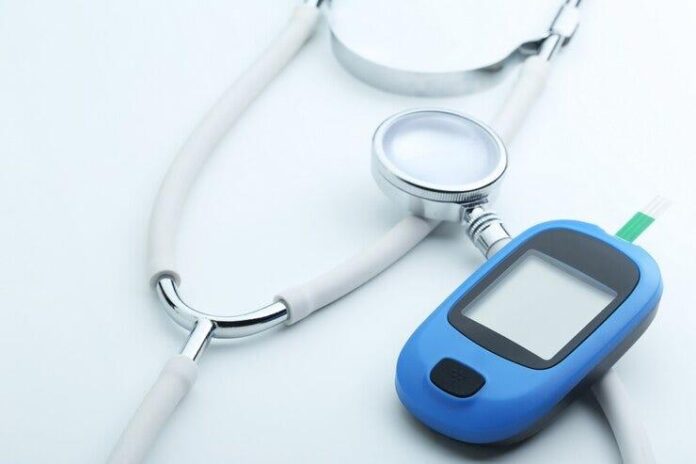
Diabetes is a chronic condition that affects millions of people worldwide. It occurs when the body is unable to properly regulate blood sugar levels, leading to high levels of glucose in the blood. Over time, this can result in a range of complications, including heart disease, kidney damage, nerve damage, and vision loss.
One of the most common complications of diabetes is diabetic retinopathy, a type of vision loss that can occur in people with diabetes. Diabetic retinopathy is a serious condition that can lead to blindness if left untreated. In fact, it is the leading cause of blindness in adults aged 20 to 74 years.
In this article, we will explore the link between diabetes and vision loss, and discuss what you need to know about this potentially devastating complication.
What is Diabetic Retinopathy?
Diabetic retinopathy is a condition that occurs when high blood sugar levels damage the blood vessels in the retina, the light-sensitive tissue at the back of the eye. Over time, this damage can cause the blood vessels to leak fluid or bleed, leading to swelling and the formation of scar tissue. This can result in vision loss or even blindness.
There are two main types of diabetic retinopathy: non-proliferative diabetic retinopathy (NPDR) and proliferative diabetic retinopathy (PDR). NPDR is the early stage of the disease, where small bulges, called microaneurysms, form in the blood vessels of the retina. As the condition progresses, the blood vessels may leak fluid or bleed, leading to swelling and the formation of scar tissue.
PDR is a more advanced stage of the disease, where new, abnormal blood vessels start to grow on the surface of the retina. These blood vessels are fragile and prone to bleeding, which can cause further damage to the retina and lead to severe vision loss.
Symptoms of Diabetic Retinopathy
In the early stages of diabetic retinopathy, you may not experience any symptoms. As the condition progresses, however, you may notice:
– Blurred or distorted vision
– Floaters, or dark spots that appear to float in your field of vision
– Difficulty seeing at night
– Changes in your color vision
– Vision loss
If you experience any of these symptoms, it is important to see an eye doctor as soon as possible. Diabetic retinopathy can be detected through a comprehensive eye exam, which may include a dilated eye exam, visual acuity test, and imaging tests such as optical coherence tomography (OCT) or fluorescein angiography.
Risk Factors for Diabetic Retinopathy
Several factors can increase your risk of developing diabetic retinopathy, including:
– Poorly controlled blood sugar levels
– High blood pressure
– High cholesterol
– Smoking
– Pregnancy
– Obesity
– Family history of diabetes or diabetic retinopathy
If you have diabetes, it is important to work closely with your healthcare team to manage your condition and reduce your risk of developing diabetic retinopathy. This may include monitoring your blood sugar levels regularly, following a healthy diet, exercising regularly, taking prescribed medications, and attending regular eye exams.
Treatment for Diabetic Retinopathy
The treatment for diabetic retinopathy depends on the stage of the disease and the severity of your symptoms. In the early stages of the disease, you may not require treatment if your symptoms are mild. Your eye doctor may recommend monitoring your condition closely and making lifestyle changes to improve your blood sugar control.
In more advanced cases of diabetic retinopathy, treatment options may include:
– Laser photocoagulation: This procedure uses a laser to seal off leaking blood vessels and reduce swelling in the retina.
– Intravitreal injections: These injections deliver medications directly into the eye to reduce inflammation and prevent the growth of abnormal blood vessels.
– Vitrectomy: In this surgery, the vitreous gel in the eye is removed and replaced with a clear solution to improve vision.
Preventing Diabetic Retinopathy
While diabetic retinopathy can be a serious and potentially blinding complication of diabetes, there are steps you can take to reduce your risk of developing the condition. These include:
– Keep your blood sugar levels under control: Work with your healthcare team to monitor your blood sugar levels regularly and make lifestyle changes to keep them within a healthy range.
– Control your blood pressure and cholesterol: High blood pressure and high cholesterol can increase your risk of developing diabetic retinopathy. Take medications as prescribed, follow a healthy diet, and exercise regularly to keep these levels in check.
– Quit smoking: Smoking can damage the blood vessels in the eyes and increase your risk of developing diabetic retinopathy. If you smoke, talk to your healthcare provider about strategies to quit.
– Attend regular eye exams: Early detection and treatment of diabetic retinopathy are key to preventing vision loss. Make sure to schedule regular eye exams with an eye doctor who is experienced in managing diabetic eye disease.
In conclusion, diabetic retinopathy is a serious condition that can lead to vision loss or blindness if left untreated. If you have diabetes, it is important to work closely with your healthcare team to manage your condition and reduce your risk of developing diabetic retinopathy. By keeping your blood sugar levels under control, monitoring your blood pressure and cholesterol, quitting smoking, and attending regular eye exams, you can protect your vision and reduce your risk of developing this potentially devastating complication. If you experience any changes in your vision, it is important to see an eye doctor as soon as possible for a comprehensive eye exam. Early detection and treatment of diabetic retinopathy can help preserve your vision and improve your quality of life.

















